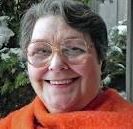
By Claudette Young
Writers come in all shapes and sizes. Each one’s background is different, experiences unique, and needs individualized.
But the challenges each writer faces aren’t always obvious. For me, the challenge is doing what I do from behind eyes that are virtually blind to the outside world. One eye contributes little and the other battles to remain a viable organ.
So, how do I produce anything in this sight and tech-driven world? I have lots of help, in several forms.
I use Dragon Naturally Speaking for dictation and command software. Coupled with MS Office, I can write, revise and edit. My dragon, Usul, allows me to take command of my computer. Usul can transcribe my spoken notes from a voice recorder into a Word document as easily as hearing it through my headset mike.
MS Word also has speech/reading capacity and a voice command capability available. Any good geek—on the Squad or not—can set up that function. A bit of practice gains mastery.
For screenwriting, I use Final Draft, which is easy to learn, reads back text for revision and editing, and has everything needed for the job.
If I’m forced to read actual text, I can set up my computer document for huge font sizes. My fallback setting is 22 pt font—Times New Roman, to be exact. And a good headset with microphone helps keep things under control most of the time.
Good software helps. As with any disability/handicap/challenge, accepting the need to adapt is the most critical aspect of working with a vision impairment. Understanding what you need, verses what you want, is also key.
For those who are facing a similar challenge or who know someone who faces it, I give these pointers.
- In order to get the resources–whether visual aids, training, or support—tackle the situation head-on.
- Diagnosis from a qualified specialist gives you more pertinent information than you might think. You can’t adjust or adapt without that knowledge and support. Once the problem is defined, you can search for necessary resources.
- Begin with the Office of Vocational Rehabilitation. The gal to connect in Kalispell is Melissa Leggett: 406-751-5940. She’s in charge of the Division for the Blind for the Kalispell area. She has more resources at her fingertips than you’d ever find on your own.
- If you need specialized equipment, there are avenues to pursue. Melissa can steer you toward what you need and when/where to lean harder in that direction. Within a year or so, I’ll probably need a large auto reader for print materials. Such readers come in many forms and sizes from desktop to hand-held. I already use a camera reader to enlarge print, for instance. Oh, and plenty of strong handheld magnifiers or lighted headgear.
- Books, magazines and periodicals are available in audio form through the public library (provided by Library of Congress), Amazon Prime and Audible, and individual publishers.
- For those online magazines and other reading material, Dragon Naturally speaking can read them for you, if necessary.
- The trick is to know when your eyes are being strained too much and when to let go of the physical reading experience.
- Organizations, such as Lion’s Club International, are also great resources for exploration. Lions Club chapters dedicate themselves to assisting those in need of dog guides—Leader Dogs for the Blind, specialized equipment too costly for the average person to afford, and other necessities like eyeglasses.
- Yet, the most helpful and necessary resource is an adequate support structure to help buoy up a person’s spirits or help for navigating the unfamiliar territory of adaptation and growth.
I hope I’ve given those who need it the information to help make informed decisions about dealing with dimming vision. Not all are writers, but everyone is touched by this malady. Globally, blindness is one of the fastest growing challenges today, both economically and medically. Few are left untouched by it.
If anyone needs or wants additional information or questions answered, please feel free to contact me at: ettedualc48@yahoo.com. I’ll be happy to answer what I can or send you to someone who can get the information to you.
Remember, no one is alone. As writers, we care about each other and are here to help whenever possible.
Claudette
http://www.claudettejyoung.com
Resources:
- Dragon Naturally Speaking can be found on Amazon.com or Nuance.com—Nuance is the software provider of this product
- Final Draft for screenwriters/playwrights can be had at both Amazon.com and FinalDraft.com
- Tutorials for Word Speech are available in video form on YouTube or on Lynda.com tutorials
- Office of Vocational Rehabilitation Kalispell–
121 Financial Drive Suite B, Kalispell, MT 59901, (406) 751-5940 http://dphhs.mt.gov/detd/vocrehab/mvrservices.aspx
- Library of Congress Low Vision Reading Program—Imagine If Library – downtown Kalispell or any legitimate library in the county.



